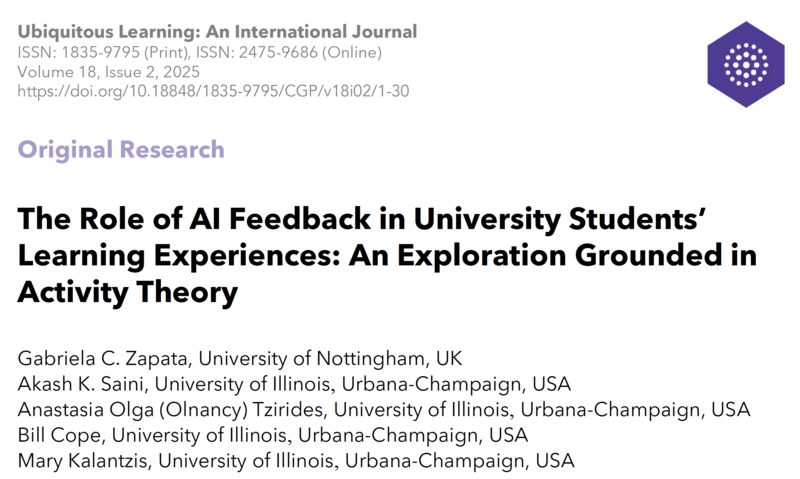New Learning’s Updates
The Role of Al Feedback in University Students' Learning Experiences
Abstract: This study employs Engeström’s second-generation activity theory (AT) to examine the transformative potential of Generative AI (GenAI) in providing formative feedback in higher education. Specifically, this research focuses on the experiences of fifty students with generic and calibrated GenAI feedback in a graduate program in the US. Through the analysis of participants’ multimodal views and textual reflections after their experiences with these two types of AI reviews, we uncover the role that the AI reviewer played in the peer and AI review activity system of which students were part. The examination of the semiotic elements embedded in the participants’ artifacts points to clear opinion differences in connection with the effectiveness and role of generic and calibrated AI feedback in the review activity system. The results show that while the generic AI reviewer was deemed an imperfect, limited tool, its calibrated counterpart was welcomed by students for its effectiveness and was even regarded by some participants as a new member of the community of practice within the activity system. Based on the findings resulting from this investigation, we suggest effective strategies for AI-human collaboration in higher education, aiming to enhance teaching and learning practices through advanced AI applications.
Full text:
- Zapata, Gabriela C., Akash K. Saini, Anastasia O. Tzirides, Bill Cope and Mary Kalantzis, "The Role of AI Feedback in University Students’ Learning Experiences: An Exploration Grounded in Activity Theory,” Ubiquitous Learning: An International Journal, 18(2):1-30, 2024, doi: https://doi.org/10.18848/1835-9795/CGP/v18i02/1-30.



You can play Block Blast anywhere.